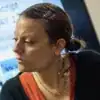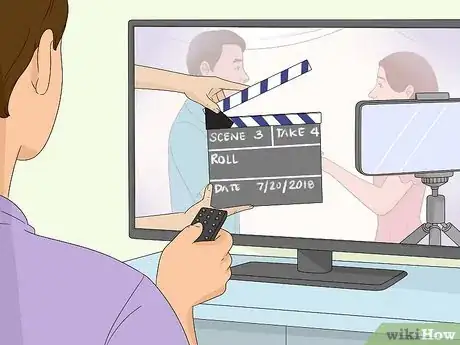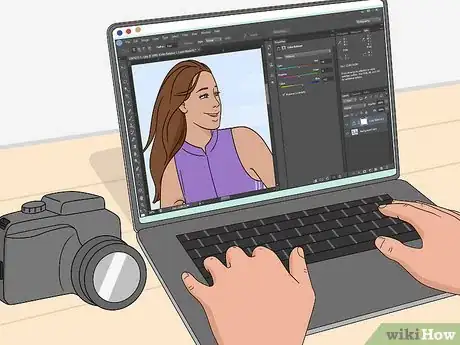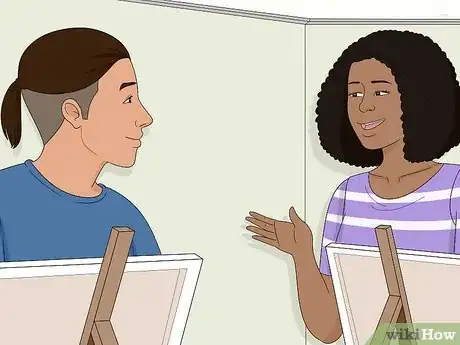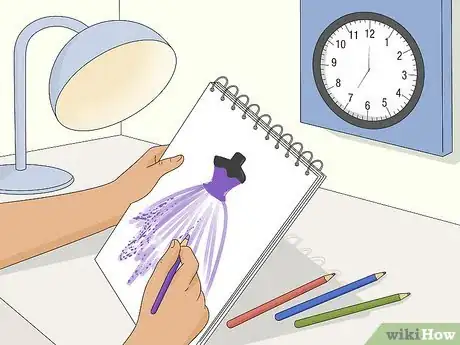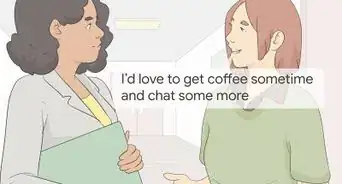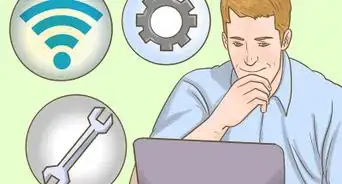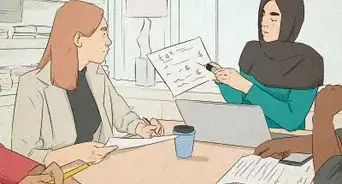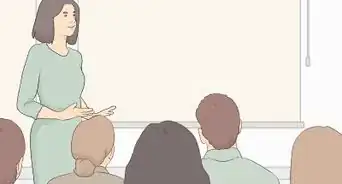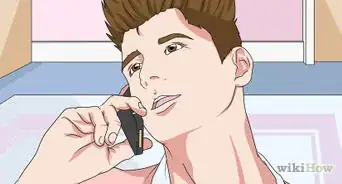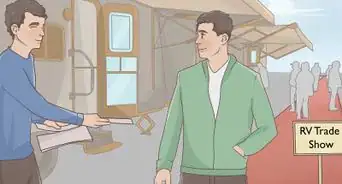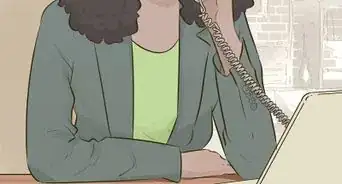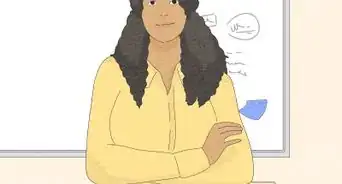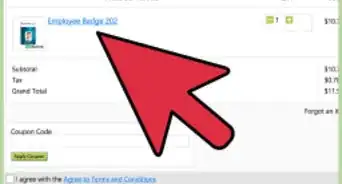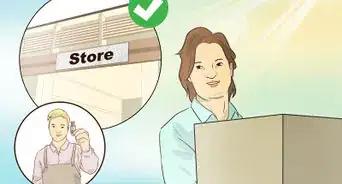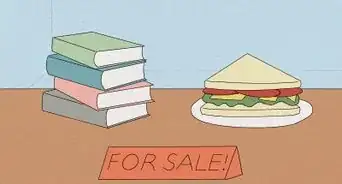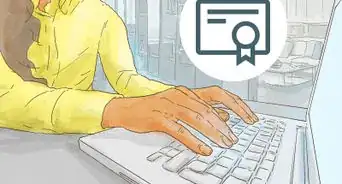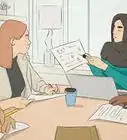This article was co-authored by Lucy V. Hay and by wikiHow staff writer, Amber Crain. Lucy V. Hay is an author, script editor and blogger who helps other writers through writing workshops, courses, and her blog Bang2Write. Lucy is the producer of two British thrillers and her debut crime novel, The Other Twin, is currently being adapted for the screen by Free@Last TV, makers of the Emmy-nominated Agatha Raisin.
There are 10 references cited in this article, which can be found at the bottom of the page.
This article has been viewed 10,682 times.
Artists thrive on inspiration in order to create, so feeling uninspired can be a real blow to your productivity, motivation, and sense of self.[1] If you're looking for ways to stay inspired, you've come to the right place! We've compiled a handy list of tips for you that can help. We'll start by discussing specific ways you can tap into inspiration when your creative juices stop flowing. Then, we'll move into more logistical stuff like how your workspace and environment affect your creativity.
Steps
Expert Q&A
Did you know you can get expert answers for this article?
Unlock expert answers by supporting wikiHow
-
QuestionHow do you get over a creative block?
 Lucy V. HayLucy V. Hay is an author, script editor and blogger who helps other writers through writing workshops, courses, and her blog Bang2Write. Lucy is the producer of two British thrillers and her debut crime novel, The Other Twin, is currently being adapted for the screen by Free@Last TV, makers of the Emmy-nominated Agatha Raisin.
Lucy V. HayLucy V. Hay is an author, script editor and blogger who helps other writers through writing workshops, courses, and her blog Bang2Write. Lucy is the producer of two British thrillers and her debut crime novel, The Other Twin, is currently being adapted for the screen by Free@Last TV, makers of the Emmy-nominated Agatha Raisin.
Professional Writer A block, such as writer's block, usually has to do with confidence. You may struggle to believe in yourself and your work, or you may feel stressed that you don't have enough time. Working out where the source of stress or lack of confidence is coming from is the key to unlocking your ability to create.
A block, such as writer's block, usually has to do with confidence. You may struggle to believe in yourself and your work, or you may feel stressed that you don't have enough time. Working out where the source of stress or lack of confidence is coming from is the key to unlocking your ability to create. -
QuestionHow do you keep your ideas flowing?
 Lucy V. HayLucy V. Hay is an author, script editor and blogger who helps other writers through writing workshops, courses, and her blog Bang2Write. Lucy is the producer of two British thrillers and her debut crime novel, The Other Twin, is currently being adapted for the screen by Free@Last TV, makers of the Emmy-nominated Agatha Raisin.
Lucy V. HayLucy V. Hay is an author, script editor and blogger who helps other writers through writing workshops, courses, and her blog Bang2Write. Lucy is the producer of two British thrillers and her debut crime novel, The Other Twin, is currently being adapted for the screen by Free@Last TV, makers of the Emmy-nominated Agatha Raisin.
Professional Writer
-
QuestionHow do you foster creativity?
 Lucy V. HayLucy V. Hay is an author, script editor and blogger who helps other writers through writing workshops, courses, and her blog Bang2Write. Lucy is the producer of two British thrillers and her debut crime novel, The Other Twin, is currently being adapted for the screen by Free@Last TV, makers of the Emmy-nominated Agatha Raisin.
Lucy V. HayLucy V. Hay is an author, script editor and blogger who helps other writers through writing workshops, courses, and her blog Bang2Write. Lucy is the producer of two British thrillers and her debut crime novel, The Other Twin, is currently being adapted for the screen by Free@Last TV, makers of the Emmy-nominated Agatha Raisin.
Professional Writer
References
- ↑ Lucy V. Hay. Professional Writer. Expert Interview. 16 July 2019.
- ↑ https://ciracollege.com/2020/05/04/how-to-stay-inspired-as-an-artist/
- ↑ https://www.npr.org/2019/12/30/792439555/making-art-is-good-for-your-health-heres-how-to-start-a-habit
- ↑ Lucy V. Hay. Professional Writer. Expert Interview. 16 July 2019.
- ↑ https://ciracollege.com/2020/05/04/how-to-stay-inspired-as-an-artist/
- ↑ https://www.ppa.com/ppmag/articles/5-ways-to-stay-productive-and-inspired-during-lockdown
- ↑ Lucy V. Hay. Professional Writer. Expert Interview. 16 July 2019.
- ↑ https://www.brown.edu/campus-life/support/counseling-and-psychological-services/perfectionism
- ↑ https://www.theguardian.com/culture/2012/jan/02/top-artists-creative-inspiration
- ↑ https://www.brown.edu/campus-life/support/counseling-and-psychological-services/motivation-lost-or-just-misplaced
- ↑ Lucy V. Hay. Professional Writer. Expert Interview. 16 July 2019.
- ↑ https://www.digitalartsonline.co.uk/features/creative-business/artists-on-not-distancing-yourself-from-collaborative-art/
- ↑ https://hbr.org/2015/10/collaborating-with-creative-peers
- ↑ https://hbr.org/2020/11/how-to-stay-creative-when-life-feels-monotonous
- ↑ https://ciracollege.com/2020/05/04/how-to-stay-inspired-as-an-artist/
- ↑ https://www.theguardian.com/culture/2012/jan/02/top-artists-creative-inspiration
- ↑ https://ciracollege.com/2020/05/04/how-to-stay-inspired-as-an-artist/
- ↑ https://www.theguardian.com/culture/2012/jan/02/top-artists-creative-inspiration
- ↑ Lucy V. Hay. Professional Writer. Expert Interview. 16 July 2019.
- ↑ https://www.ppa.com/ppmag/articles/5-ways-to-stay-productive-and-inspired-during-lockdown
- ↑ https://www.theguardian.com/culture/2012/jan/02/top-artists-creative-inspiration
